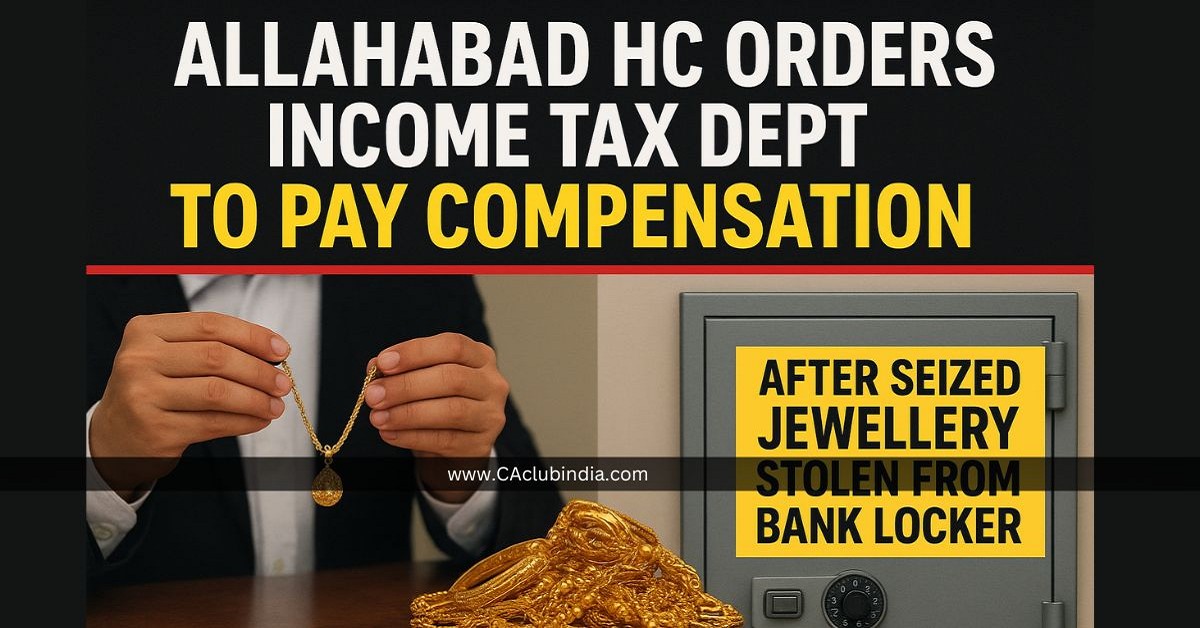The Allahabad High Court has directed the Income Tax Department to compensate a taxpayer whose seized gold jewellery worth over Rs 90 lakh was stolen from a bank locker where it had been stored for safekeeping.
According to a report, the case arose after income tax officials, during a raid on Mr. Jain's premises, confiscated jewellery valued at Rs 94.64 lakh due to lack of ownership documentation. The seized items were subsequently deposited in a locker at a nationalised bank but were later discovered missing while the tax proceedings were still pending.

Theft During Proceedings Leads to Court Battle
Following the disappearance of the jewellery, Mr. Jain filed a writ petition (WRIT TAX No. 4160 of 2025) before the Allahabad High Court against the Union Bank of India, the Income Tax Department, and the bank's branch manager, seeking compensation of Rs 94,64,844 along with 9% annual interest from July 30, 2025, until payment.
In its judgment dated September 25, 2025, the court observed significant delays and lapses by Income Tax authorities in processing the settlement and ensuring the security of the confiscated assets. The bench held that, since the Income Tax Department had initially seized the jewellery, it bore ultimate responsibility for its loss, regardless of the fact that the theft occurred within the bank's custody.
Court's Directions and Compensation Order
The High Court ordered the Income Tax Department to:
- Verify the valuation submitted by the petitioner on July 30, 2025,
- Process the compensation payment within four weeks of verification, and
- Pay penal interest at 12% per annum if the amount is not settled within the stipulated time.
The judgment read: "We make it clear that the petitioner (Jain) should be paid the amount within the aforesaid period, otherwise the Income Tax Authorities shall be liable to pay penal interest of 12% on the valuation of the Jewellery starting from the date of seizure."
The court also granted the Income Tax Department the liberty to recover the compensated amount from the respondent bank in accordance with the law.
Accountability in Seizure and Custody
Legal experts view this case as a significant precedent for clarifying custodial responsibility in cases involving asset seizure during tax raids. The ruling underscores that once an authority takes possession of assets, it assumes responsibility for their safekeeping and must compensate for any loss, irrespective of third-party custodianship.
The verdict serves as a reminder for both enforcement agencies and financial institutions to maintain strict asset handling protocols and secure storage mechanisms, ensuring that taxpayer rights are not compromised during investigative proceedings.







 CAclubindia
CAclubindia

